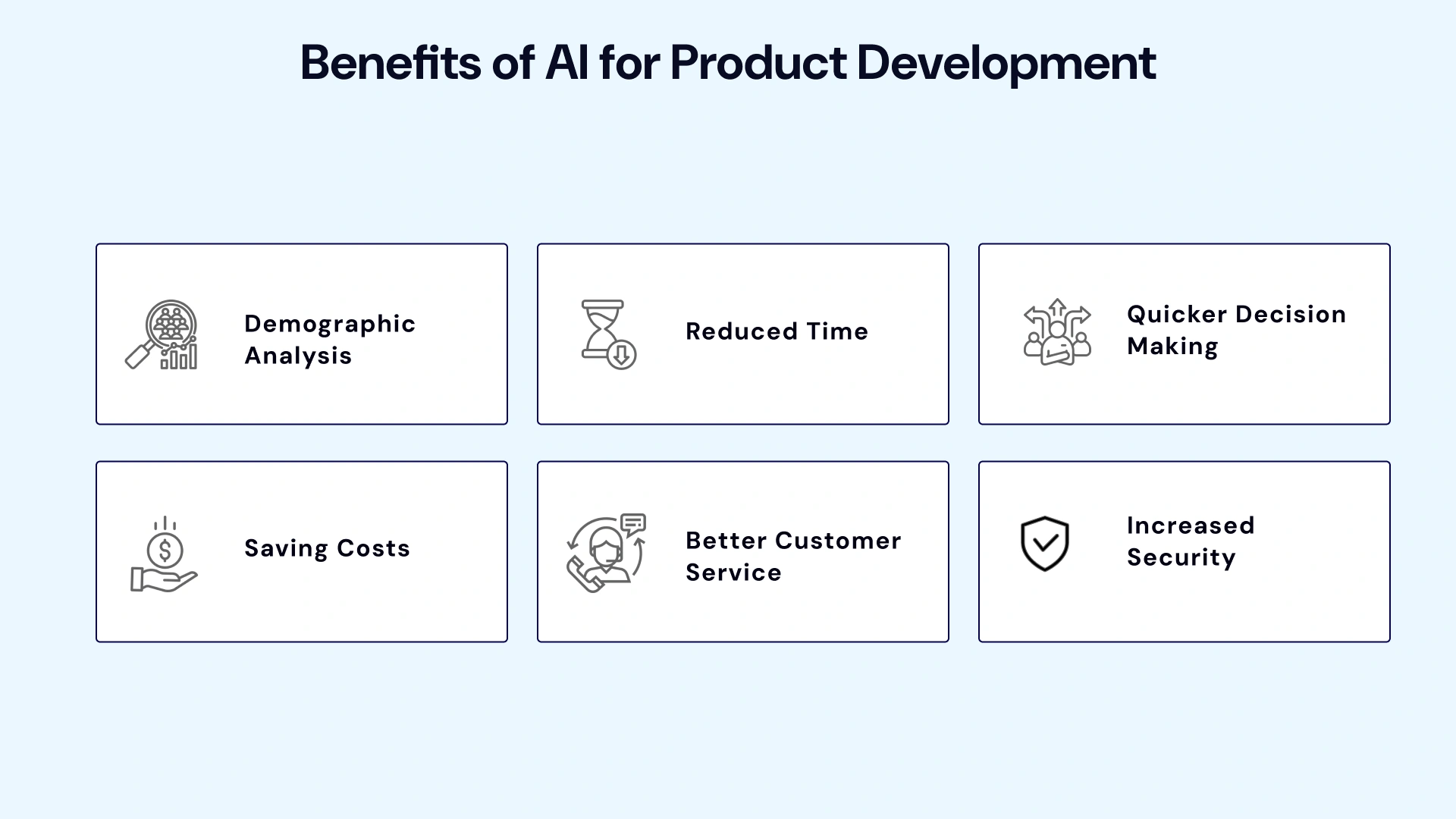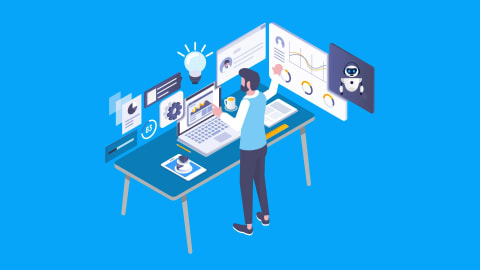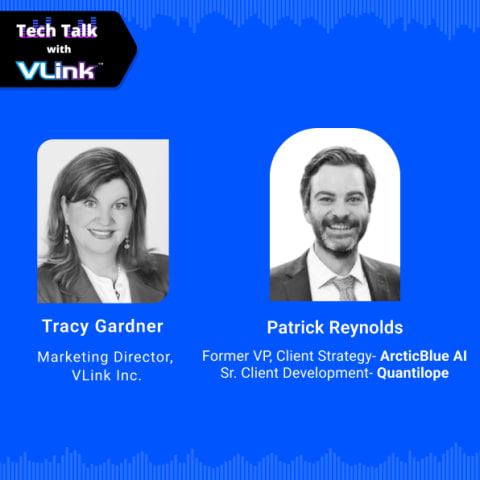Whether it be about streamlining corporate operations or tailoring consumer experiences, the strategic integration of AI into existing systems enables enterprises to jump toward the future of intelligent automation.
The market size of generative AI in product development is predicted to reach $1,130 million by 2032. Its market size, by type, is shown in the figure below.

Many popular brands are enjoying the benefits of AI technology implementation.
For example;
- Netflix analyzes user’s watching history and makes suggestions for series and movies you might like using AI to customize your viewing experience.
- Using past AI data, Google Maps calculates travel times, proposes other routes, and delivers real-time traffic reports.
- Siri and Amazon Alexa are AI-driven virtual assistants that respond to voice commands to send messages, make calls, create reminders, play music, and offer weather information.
Are you planning to integrate AI into product development but don't know how? Read this blog. Here, we will explore the top 8 ways of AI integration solutions.
Let's first start with its brief introduction!
What is AI in Product Development?
Artificial intelligence (AI) is the application of tools, technologies, and algorithms to improve many parts of the product creation process. It entails utilizing artificial intelligence (AI) to boost productivity, make data-driven choices, improve user experiences, and spur innovation across a product's lifespan, from conception through launch and beyond.
AI market share by end-use is shown in below figure:

8 Ways to Implement AI in Product Development
In the time it takes for us poor humans to blink, AI can process enormous volumes of data. It enables it to rapidly identify market gaps using a variety of sources, including new trends, surveys, and social media.
It could well save your life. Normally, sorting through qualitative data takes many hours. These hours may be used more productively and creatively elsewhere.
35% of SMBs and startups fail because there is no demand in the market.
Fortunately, AI can assist in finding a solution. Startups may get more precise, comprehensive data using AI-driven data analytics services to assist them in deciding if their product genuinely satisfies the demands of their consumers or even whether they have chosen the proper market in the first place.
Teams may gain a deeper understanding of their consumers by using AI to collect and analyze data.
By examining their user data, AI is already being used to target specific individuals. Have you seen those ads on social media or YouTube? Based on what you've enjoyed and interacted with on their network of channels, they are specially tailored to you.
Marketers who buy that data can then use it to pitch you items they believe you would be interested in. It explains why Facebook, Instagram, X (Twitter), and other platforms are all free to use while still being among the most successful companies in the world.
This type of data is also available to business owners. You have access to purchase histories, among other things. If you experiment with internet advertising, you may use third-party databases to find your target audience. Here, AI may be used to customize your sales strategy and create items that are specific to the tastes of each consumer.
You may mass-personalize emails, customer service, and other aspects of client contact with ChatGPT. All of this results in a consumer that is happier and more devoted.
Learn a complete overview about ChatGPT.
An adequate architecture must be created during the software design process in order to implement a software solution. To create an architectural design that meets the needs of the application's users, knowledge and meticulousness are required.
AI software for product design can speed up and improve this procedure. To find the optimal strategy for a new app's user needs, technologies like AIDA (Artificial Intelligence Design Assistant) may examine past software designs. This artificial intelligence (AI) based technologies can assist in better understanding customer requirements and producing designs that meet those objectives.
AI is enhancing customer assistance programs. Businesses can use AI-enabled chatbots for customer management in a variety of ways;
- Understanding customer behavior
- Providing features
- Managing a large volume of customer queries through automation
- Using natural language processing through chatbot capability to provide enhanced human-like interaction
- Seamlessly integrating with CRMs to quickly locate information and decrease customer wait times
More and more companies are using chatbots to assist with customer care. They can assist a large number of clients at once and never take breaks. Due to how efficiently they function, a lot of firms are beginning to include chatbots in their products.
Also Learn: Everything you need to know before developing a healthcare chatbot
New technologies like natural language processing, semantic analysis, audio recognition, and text recognition are helping chatbots get better. Chatbots can better understand their users and assist them in finding answers to their problems thanks to these technologies.
Dedicated development team may create chatbots that can deliver messages, upload files, and converse with clients in text or speech by using specialized technologies like Amazon Lex, Slack Bot API, and Facebook Messenger API.
To verify that the software product complies with accepted standards and market needs, QA software & testing services, also known as code testing, is essential to product development.
AI-based code testing approaches may automatically evaluate the code, detect problems, and solve coding flaws. It leads to more effective and quicker testing procedures than manual testing, which includes developers and testers manually discovering and correcting faults and errors.
Also Learn: The Impact of software testing & quality assurance In SDLC
Techniques for testing AI-based programming include differential, functional, visual, and declarative testing. DeepCode, Test.AI, and the test.io plugin are a few examples of AI-powered tools that provide effective code testing and interact with GitHub to support code review.
Also Read: Complete guide on software testing & QA best practices for enterprises
You may want to compete with the best if you want to apply machine learning & AI development services in product development. You may learn how to enhance your product and services by having your AI of choice conduct a competitive analysis of your main rivals.
With AI, this can be completed much more quickly than with humans. You'll spend a lot less money on it, and it could even cover areas you hadn't thought of.
It's one of the greatest methods for finding insightful information and staying ahead in the contemporary world. When it comes to competition analysis, AI & software development tools are widely available. Even ChatGPT can do a thorough study of your rivals.
When comparing websites, a tool like SEMrush is excellent, especially when taking into account how much traffic each website receives through SEO.
Do you need a prototype quickly? Your new go-to is AI. Rapid prototyping is one of its many capabilities, but it may also assist in creating actual components using methods like generative design.
There are several AI mockups, wireframe, and prototype software options available. One of the top design and iteration tools available today is called Uizard. No prior design experience is necessary. To make your concept come to life, you may drag and drop components, scan images of applications or websites, or create mockups from text prompts.
Also Learn: How AI & ML will revolutionize the future of digital transformation.
What are the Benefits of AI for Product Development?
Here are some benefits of Artificial Intelligence for product development in the figure:

How Much Does It Cost to Build an AI-Powered App?
In 2023, companies can pay more than USD 300,000 for AI-powered software. Here are AI app development cost breakdowns based on industries, app types and development stages.
AI App Development Cost Breakdown Based on Industries:
Industries | Average Costs |
| Banking & Finance | $80000+ |
| Manufacturing | $50000+ |
| Healthcare | $50000+ |
| Insurance | $40000+ |
| Supply Chain | $25000+ |
| Real Estate | $20000+ |
AI-Powered Software Development Cost Breakdown Based on Type:
App Type | Average Development Costs |
| Machine Learning Software | $45000 – $60000 |
| RPA Software | $15000 – $25000 |
| AI Chatbot | $20000 – $30000 |
| Money Management App | $30000 – $40000 |
| Speech Recognition Software | $25000 – $40000 |
| Telemedicine Software | $40000 – $50000 |
If you want to know the exact cost of AI-powered app development, consider the following factors:
- Project Type
- Level of Intelligence
- Accuracy
- Management
- Features
Also Learn: How much does it cost to build an AI voice generator app like Speechify ?
Contact VLink to Implement AI Into Your App Development Services!
By following the ways mentioned above, you can implement AI in product development services. But it’s a very challenging task. So, it’s recommended to hire a dedicated AI app development company. At VLink, we provide AI-powered mobile app development services to engage your users and increase your ROI.
As a leading provider of AI-based services, our experienced developers have the skillset and experience to develop Artificial Intelligence mobile apps incorporated with all key AI technologies like ML, NLP and deep learning. Our AI implementation strategy allows for the seamless integration of these advanced technologies into your app, leading to exceptional results.
By choosing us for AI integration, you will be able to revolutionize your app and empower your business to stay ahead in the rapidly evolving digital landscape.









 Shivisha Patel
Shivisha Patel

















